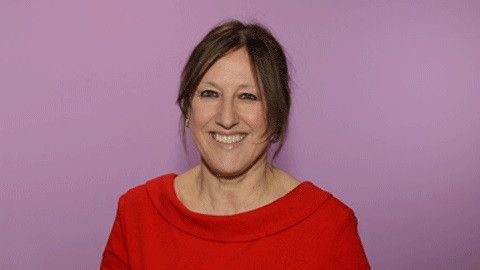
For our weekly “Ideas on Europe” editorial by UACES, the University Association for European Studies, we have the pleasure to welcome again Helen Drake, Director of the Institute for Diplomacy and International Governance at Loughborough University London. Bonjour, Helen!
How does a UK-based researcher see the French presidential election?
Here are the seven that I see and don’t see in these elections.
With regards, first, to candidates and parties, I see some old wine in old bottles and some old wine in new bottles, but very little new wine. Why this shortage of fresh political ideas?
In these elections we see the challenges of what Andy Smith calls the ‘political work’ still needed to ‘take on’ the ‘societal structures’ ‘made in France’ in the last 40 years or so. Such political work is highly risky in the hyper-competitive political arena of France in 2022 and at a time when politics more generally is characterised by short-termism and the perils of instant gratification. More on that later.
Second, I see the external dimensions of the campaign: France after all is defined as much by its relationships outside France as by its domestic challenges. The domestic, the European and the international have been intertwined in previous presidential elections, not because these issues are typically salient for voters – they’re not – but because they are implicit in candidates’ world views and their political offers, from questions of sovereignty to pensions reform. In 2017 of course, Macron styled himself as a president who would manage France’s interdependence through astute EU leadership amongst other things. In the 2022 elections, the presence of the geopolitical is particularly striking: the current war in Ukraine is a tragically specific example: its role in Macron’s late declaration of his candidacy; in the obvious advantages (mainly) that accrue to Macron as leader in time of war not making a complete mess of it; also in the less obvious repercussions such as candidates’ Russophile pasts coming back to bite. In the long term, beyond this election, we’re looking here at external developments (including Brexit) nudging France into a reckoning with itself.
What about the European Union in these elections?
The EU – my 3rd point – is a sub-set of these external dimensions. The current presidency of the Council of the EU provides an opportunity for the incumbent but also threat: persistent accusations of ‘recuperation’. Macron is certainly not immune to the lure of the opportunity to be visibly and audibly active on the international scene. Chris Reynolds has argued that the 2012 elections were a ‘game changer’, after which eluding the European question has become increasingly difficult for presidential candidates. 2017 and 2022 are no exception here.
And COVID?
4th point: Covid is a defining crisis of the Macron presidency; it exposed and symbolised the state and its power, and resistance to that. Not sure that Covid recovery plan-style economics will allow Macron to shed his label of the president of the rich, the president of the right, the ‘last neoliberal’ to quote Bruno Amable and Stefano Palombarini.
5th point: in these elections we see a pervasive sense of crisis (and I haven’t even mentioned the climate). With crisis come opportunities for charismatic leadership, in this case enabled by the institution of the French presidency with all its symbolism and historical resonance. Macron scores well here, to a point. But we also detect what anthropologists call ‘tricksters’, would-be leaders who thrive in liminal spaces such as elections and whose stock in trade includes bad faith, irresponsibility, untruths and lies.
Such tricksters – my 6th point – are emboldened by bigger trends that we see, and not only in France, concerning the legitimation of political power and authority. Not only is the President as a person is no longer sacrosanct, neither physically nor legally, but political communication has changed, with widended scope for disinformation, mispresentation, fakes and lies and more generally, the fragmentation of the body politic, and pressure to think short term and supply instant gratification. It’s hard to deny or ignore the extent of political cynicism that is the bedrock for political alienation.
And on top of all that, the French presidency and the model of political authority that it embodies may be outdated in terms of social and cultural norms: isn’t it a rather ‘masculine institution’, as has been argued by Achin and Lévèque?
Which takes me to a final thought on what I see in 2022, namely democracy at stake, or a crisis of politics: this may sound grandiose but it seems to me that it is hiding in plain sight, in:
- under-represented citizens and interests;
- a lack of democratic participation or enthusiasm for conventional politics including the presidency, once such a pinnacle of French political life;
- crucially, a lack of national unity regarding France’s democratic future.
Such themes are not entirely absent from the 2022 campaign: Mélenchon campaigning for a 6th Republic still; Macron calling for more citizen involvement in politics, but there does seem to be a lack of cross-party consensus or media interest really in/on what a renewed Republic would look like. So these will be elections lacking political depth or conviction on part of French nation as a whole.
Wow, Helen, many thanks for sharing your perspective with us.
“Ideas on Europe” will be back next week, and we will welcome Clare Rice, from the University of Newcastle, in the UK.





